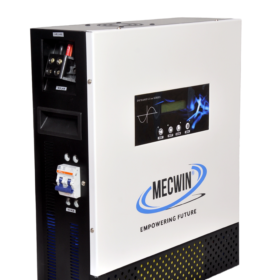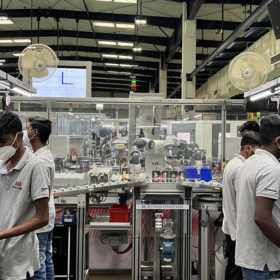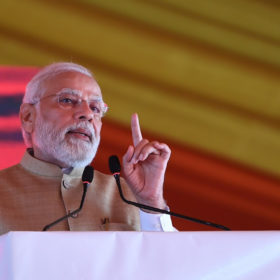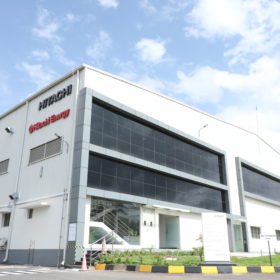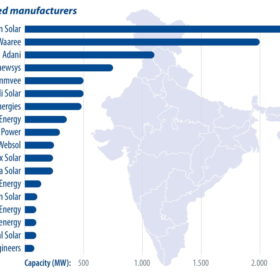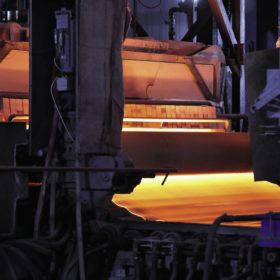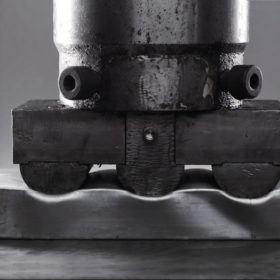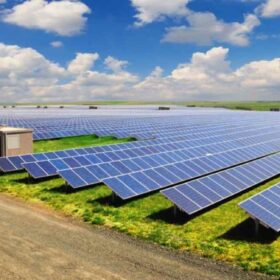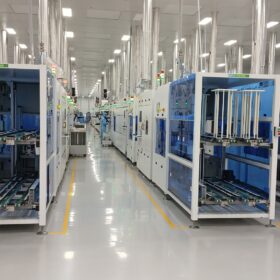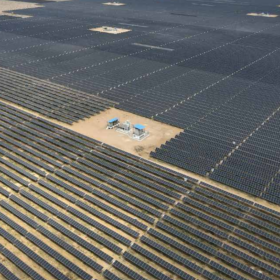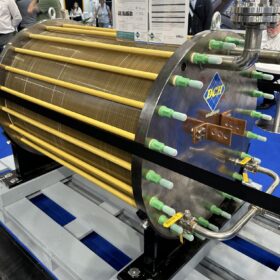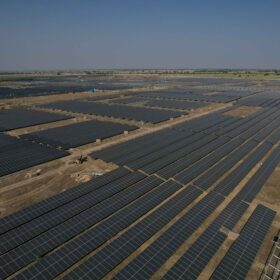Wall-mountable lithium battery inverter from India
India’s Mecwin has unveiled compact, wall-mountable lithium battery inverters with 1,100 VA and 2,100 VA ratings. The 1,100 VA devices measure 455 mm x 530 mm x 235 mm and weigh 23 kg. The built-in battery can be charged with grid power and solar electricity.
ABB India upgrades smart power factory to Industry 5.0
ABB has adopted Industry 5.0 production processes at its smart power solutions factory in Bengaluru. With “cobots” working alongside humans, the factory’s productivity has improved by 40%, while energy productivity has gone up by more than 15%.
Prime minister Narendra Modi to launch construction of Suzuki’s EV battery plant in Gujarat
Japanese carmaker Suzuki Motor is investing INR 7,300 crore (around $914 million) to set up the electric vehicle battery plant at Hansalpur in Gujarat. The plant will manufacture advanced-chemistry cell batteries.
Hitachi Energy ramps up manufacturing of ‘power quality’ products
Hitachi Energy’s new production facility in India will manufacture solutions that support stable electrical networks and reduce energy consumption.
The long read: India’s solar manufacturing wave
India installed 14GW of new PV in 2021. This year, utility-scale developers are pushing to import modules and build inventory for 2022 installations, before a basic customs duty goes into effect in May, with a 40% duty for module imports and 25% for cells. PV module distributors are also expected to build their inventories to save on duties and have enough supply for the C&I segment in 2022. After assessing the country’s current demand, project pipeline, and module availability, IHS Markit’s Dharmendra Kumar forecasts 18GW to be added in 2022.
The long read: Indian solar manufacturing sector is set for a boom
The Indian solar manufacturing sector is set for a boom in the coming years, due to the country’s enormous appetite for solar and policy support in the form of import duties and local production incentives. On the technology side, a few players are already looking at n-type TOPCon cells, but their embrace by the majority has been slow to materialize, due to the high investment costs that are required. This ensures that the build-out of new PERC capacity will continue over the short term.
Tapping the off-grid solar market in India
Ashutosh Verma, founder of solar appliance manufacturing company Exalta India, says the key to increasing the uptake of solar products in rural areas lies in improving the access to finance, infrastructure to retain the technology, and awareness on usage.
India’s annual lithium battery market will reach 116 GWh in eight years
The annual demand for lithium-ion batteries in India will reach 116 GWh in FY 2029-30, with electric vehicles (EVs) accounting for 90%.
Building battery storage systems in India
Nexcharge, a joint venture of India’s largest lead-acid storage battery manufacturer, Exide Industries Limited, and Swiss Lithium-ion battery manufacturer Leclanché, has fully automated assembly lines of li-ion battery packs, modules, and cell testing labs in Gujarat. Ketan Chitnis, vice president-stationary BU, tells pv magazine the government’s PLI Scheme is a major incentive for attracting investment into Li-ion cell manufacturing.
Sustaining the battery storage supply chain
Noida-headquartered Lohum plans to expand its integrated lithium-ion battery manufacturing and recycling facility in India to 3 GWh and expand into the US with its first facility. Co-founder Justin Lemmon speaks to pv magazine about how their operations in India will solve the battery supply chain and cost challenge for the nation’s electric mobility and renewable energy ambitions.
